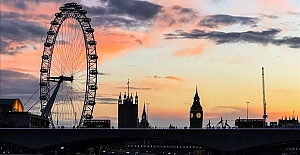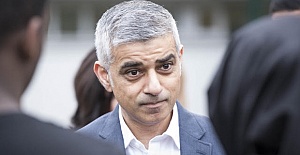China deplored tension on the Korean peninsula on Sunday and in an apparent reference to North Korea, said no country should be allowed to plunge the region into chaos after the United States postponed a missile test to ease talk of war. The North, led by 30-year-old Kim Jong-un, has been issuing threats of war against the United States and U.S.-backed South Korea since the United Nations imposed sanctions after its third nuclear weapon test in February. Its anger has been compounded by weeks of joint military exercises by South Korea and the United States.
The North told diplomats late last week to consider leaving Pyongyang because of the tension, but embassies appeared to view the appeal as more rhetoric and staff have stayed put.
South Korea said it was anticipating any manner of action that the North's unpredictable leaders might make, including a possible missile launch, by Wednesday, after when the North said it could not guarantee diplomats' safety.
China, North Korea's sole financial and diplomatic backers, has shown growing irritation with North Korea's warnings of nuclear war.
Chinese President Xi Jinping, addressing a forum on the southern island of Hainan, did not name North Korea but said no country "should be allowed to throw a region and even the whole world into chaos for selfish gain".
Stability in Asia, he said, "faces new challenges, as hot spot issues keep emerging and both traditional and non-traditional security threats exist".
Chinese Foreign Minister Wang Yi, in a statement late on Saturday, relating a telephone conversation with U.N. Secretary-General Ban Ki-moon, expressed similar frustration.
"We oppose provocative words and actions from any party in the region and do not allow trouble making on China's doorstep," Wang said, according to a ministry statement on its website.
On Sunday, the ministry expressed "grave concern" at rising tension and said China had asked North Korea to "ensure the safety of Chinese diplomats in North Korea, in accordance with the Vienna Convention and international laws and norms".
China's embassy, it said, was "understood" to be operating normally in Pyongyang.
Australian Prime Minister Julia Gillard, addressing the Hainan forum, said avoiding conflict on the peninsula was vital.
"There, any aggression is a threat to the interests of every country in the region," she said.
British Foreign Minister William Hague said North Korea's nuclear ambitions, had to be taken seriously.
Interviewed by Sky News, he said the international response "should also be very clear, very united and calm at all times because it's important not to feed that frenetic rhetoric that we've seen over the last few weeks".
Switzerland's Foreign Ministry offered to mediate, saying it was "always willing to help find a solution, if this is the wish of the parties, such as hosting meeting between them".
Kim, the third member of his dynasty to rule North Korea, is thought to have spent several years in Switzerland being educated under a pseudonym. He took over in December 2011 after the death of his father, Kim Jong-il, who confronted South Korea and the United States throughout his 17-year rule.
In Washington, a defence official said a long-scheduled test of the Minuteman III intercontinental missile, due to take place at the Vandenberg Air Force Base in California, would be postponed.
"This is the logical, prudent and responsible course of action to take," the official said, speaking on condition of anonymity.
He said the test had been unconnected to "anything related to North Korea" and added that another test launch could be expected next month. The United States remained fully prepared to respond to any North Korean threat, the official said.
The South Korean president's office said the country had a "firm military readiness" for any eventuality. It described as "planned behaviour" the North's call for South Korean workers to leave the Kaesong joint industrial park, just inside North Korea, and for diplomats to evacuate Pyongyang by Wednesday.
"Ahead of that time, a situation like a North Korean missile launch could occur," Kim Haing, a spokeswoman for the presidential Blue House, quoted the chief of the National Security office as saying.
"As of now, there are no signs of all-out war, but if a local conflict breaks out, North Korea should be aware that it will pay the price."
China deplores Korea tension
Chinese President Xi Jinping, addressing a forum on the southern island of Hainan, did not name North Korea
07 Nisan 2013 Pazar 12:49
reads.
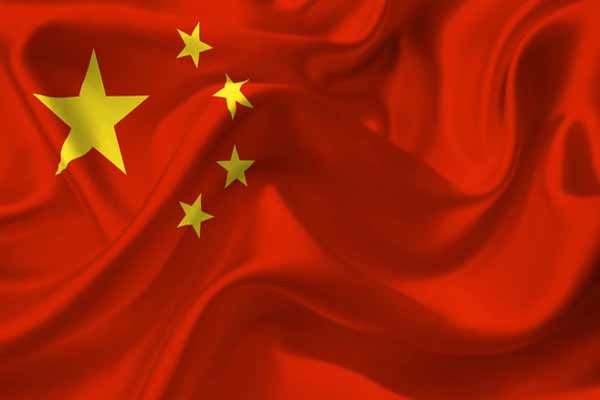


 After Nesil Caliskan a by-election will be held in Jubilee ward in Enfield
After Nesil Caliskan a by-election will be held in Jubilee ward in Enfield Publishing the analysis, Labour’s Cllr Ergin Erbil said Everybody in Enfield deserves basic rights
Publishing the analysis, Labour’s Cllr Ergin Erbil said Everybody in Enfield deserves basic rights Gaza-Israel conflict Statement from Cllr Ergin Erbil, Leader of Enfield Council
Gaza-Israel conflict Statement from Cllr Ergin Erbil, Leader of Enfield Council Cllr Ergin Erbil was elected as the new Leader of Enfield Council
Cllr Ergin Erbil was elected as the new Leader of Enfield Council Sustainable Development and ESG, Will This Become the Course for Turkic World
Sustainable Development and ESG, Will This Become the Course for Turkic World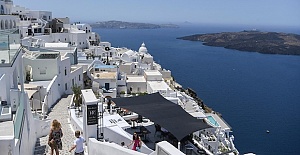 Thousands evacuate Santorini as more earthquakes strike island
Thousands evacuate Santorini as more earthquakes strike island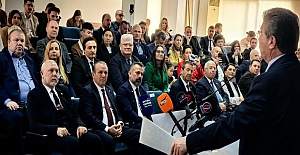 Rauf Raif Denktas and Dr. Fazıl Kucuk II. International Cyprus Studies
Rauf Raif Denktas and Dr. Fazıl Kucuk II. International Cyprus Studies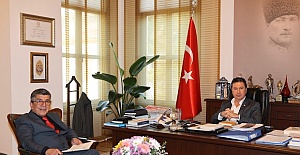 We continue our promotional activities in Europe, primarily in the UK said Ahmet Aras
We continue our promotional activities in Europe, primarily in the UK said Ahmet Aras Saran Media And Euroleague Basketball Extend Media Rights Partnership for Four More Years
Saran Media And Euroleague Basketball Extend Media Rights Partnership for Four More Years Will Rangers be Jose Mourinho’s next victim?
Will Rangers be Jose Mourinho’s next victim? Jose Mourinho's Fenerbahce face Rangers on Thursday
Jose Mourinho's Fenerbahce face Rangers on Thursday Inzaghi stated that they felt the absence of our national player Hakan Çalhanoğlu
Inzaghi stated that they felt the absence of our national player Hakan Çalhanoğlu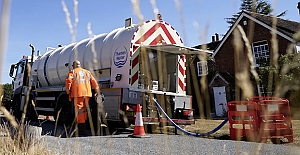 Why is Thames Water in so much trouble?
Why is Thames Water in so much trouble? Plans revealed for the next proposed Superloop express bus route in the Thamesmead
Plans revealed for the next proposed Superloop express bus route in the Thamesmead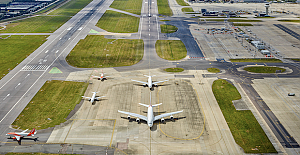 Gatwick second runway backed by government
Gatwick second runway backed by government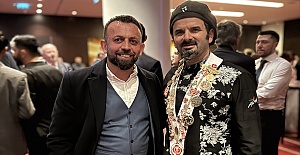 British Kebab Awards 2025 winners
British Kebab Awards 2025 winners





